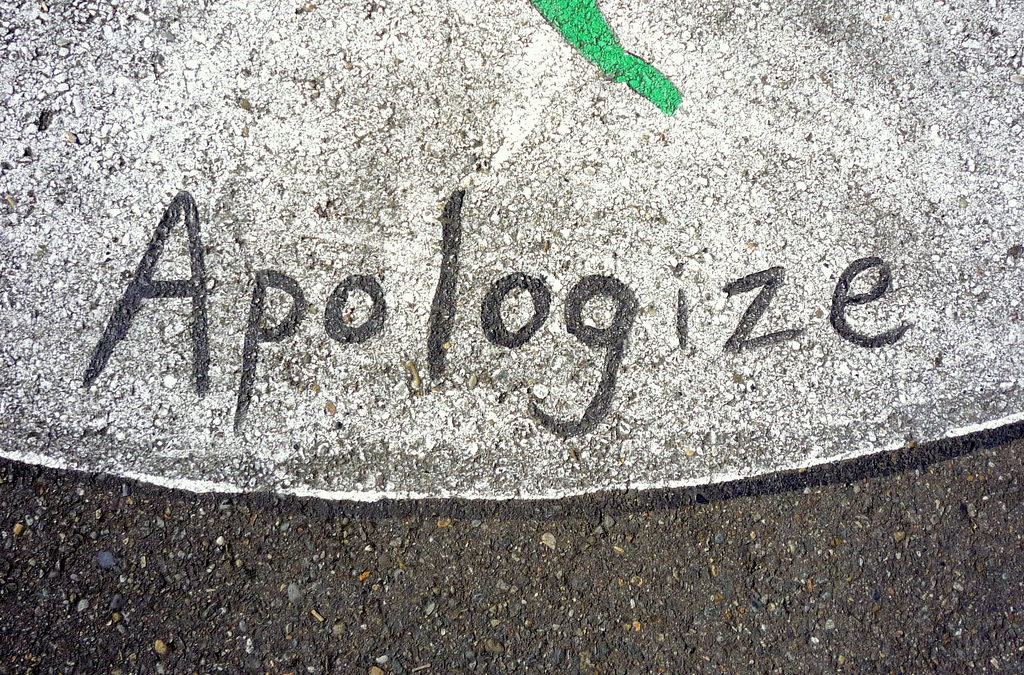My friend Ricki asked me this the other day;
“How do you say I’m sorry when you don’t feel like it? You know, you’ve done something that’s upset a co-worker, it’s not a big deal, and you’re told or know you should apologize to keep the peace or whatever.”
(If you’re honest, you’ve asked yourself this question before.)
My not so short answer;
“We say things like “but I don’t feel like it” or “I shouldn’t have to” because it’s hard to think about why we’re wrong, how we’ve hurt someone or that we made a mistake. If you’ve done something that’s impacted another person negatively, intentionally or not, “big deal” or not, then you need to apologize.”
So, how do get yourself to feel like apologizing?
Stop thinking about why you shouldn’t have to apologize and start thinking about why you should.
(it generally does the trick)
Once you’ve figured out why you need to you’re going to take it a step further, and you’re going apologize well by following these steps.
(no blurting out a quick “sorry” for you, my friend)
1.) Start with “I’m sorry for “ then say what you did wrong.
Be specific. Don’t mince your words.
If you let someone down by showing up late to a client meeting, say it. If you didn’t speak up when your co-workers were talking bad about your boss, own it
2.) Talk about how the mistake impacted the other person (not you).
Don’t start with how terrible you feel. Be specific about describing how the damage you caused made them feel.
For example;
“You must’ve been hurt, frustrated, disappointed when I didn’t speak up for you at the meeting.” or “Because I didn’t show up on time, that left you without the help you needed with the client.”
3.) Say how you’ll make amends.
Show you’ve spent time thinking about you’ll make it up to the other person with action(s) that are meaningful to them.
For example; “I’m going to be 15 minutes early for our next meeting, and I’ll take responsibility for sending out the next agenda in advance.”
4.) Do it.
Actions speak louder than words. Don’t promise something won’t happen again, show that it won’t.
Apologizing isn’t easy, it’s necessary.
We’re human; we make mistakes whether we mean to or not. Learning how to recognize our errors and sincerely apologize for them will make you and the people around you better.

